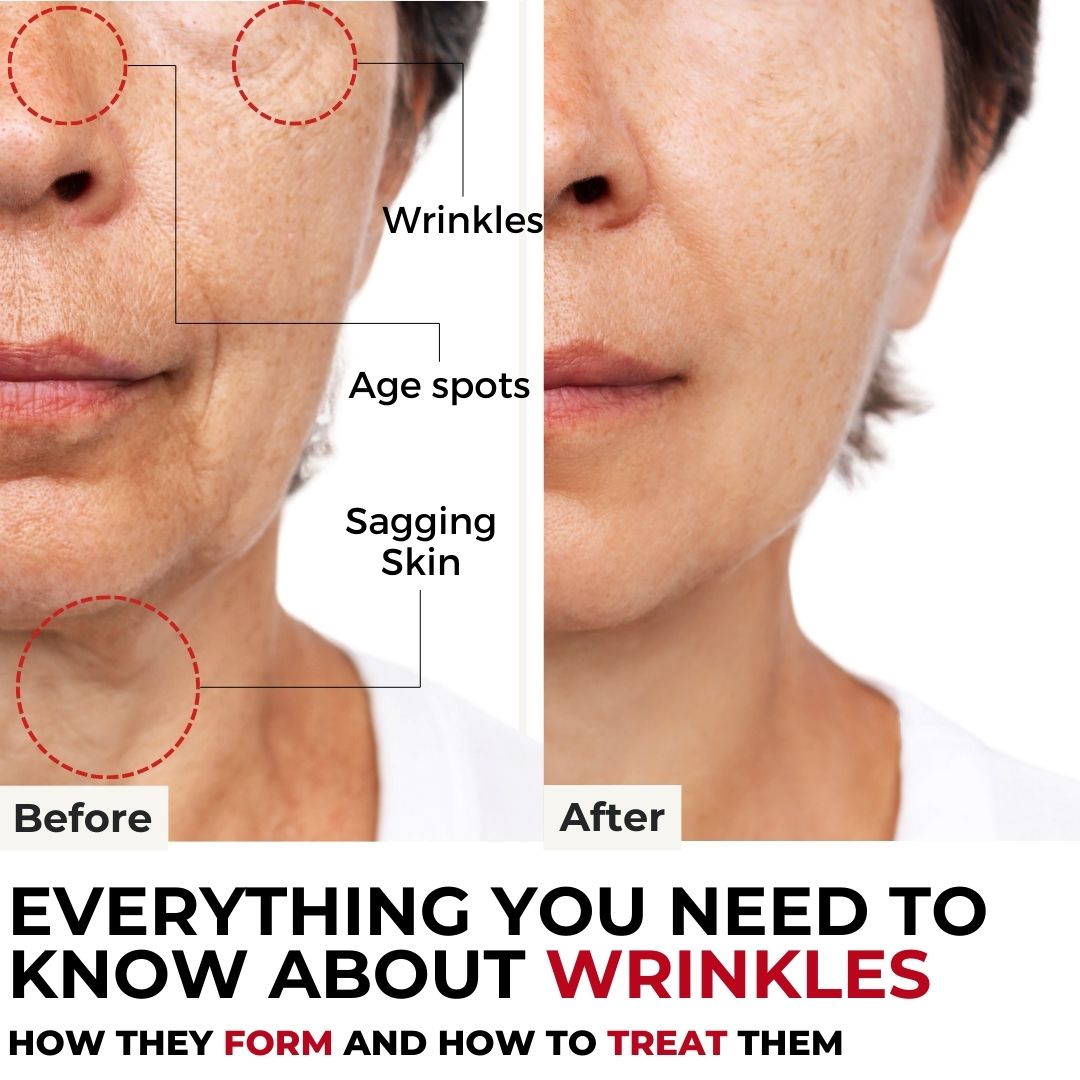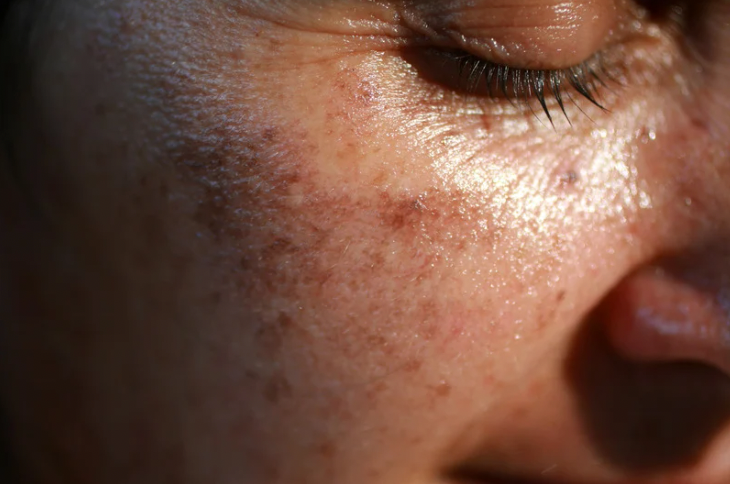Pregnancy will undoubtedly come with a number of changes to your body, and some of these changes can manifest on your skin. One of the most common being pigmentation, often referred to as melasma or the "mask of pregnancy." This condition manifests as dark, blotchy patches on the skin, typically on the face, and is caused by hormonal changes that increase melanin production, the pigment responsible for skin color. While this condition is generally harmless and tends to fade postpartum, it's important to understand its causes, recognise when to consult a doctor, and explore natural treatments that can help reduce pigmentation.
Understanding Pregnancy-Related Pigmentation

What It Is: Pregnancy-induced pigmentation, or melasma, is characterised by dark, irregular patches, often appearing on the forehead, cheeks, upper lip, and chin. This condition is triggered by hormonal fluctuations during pregnancy, which stimulate an overproduction of melanin in the skin. Melanin is the natural pigment responsible for the color of our skin, hair, and eyes. When its production becomes uneven, it leads to hyperpigmented areas.
Forehead: Dark patches across the forehead can give an uneven skin tone.
Cheeks: Melasma on the cheeks can appear as symmetrical blotches on both sides of the face.
Upper Lip: Often mistaken for a mustache shadow, pigmentation on the upper lip can be particularly noticeable.
Chin: Dark spots on the chin may combine with those on the upper lip, forming a butterfly-like pattern.
Harmless or Harmful?
Melasma is generally harmless and primarily a cosmetic concern. However, if you notice any changes in the shape, size, or color of the pigmentation, or if it is accompanied by other symptoms such as itching or bleeding, it is advisable to consult a dermatologist. Persistent or unusual pigmentation changes should be evaluated to rule out other skin conditions.
Will It Go Away?
For many women, pregnancy-induced pigmentation fades on its own after childbirth as hormone levels return to normal. However, the timeline can vary:
- Postpartum: Pigmentation may start to fade within a few months after giving birth.
- Persistent Cases: In some cases, melasma can linger for years without treatment.
Natural Topical Treatments
1. Vitamin C
Vitamin C is a potent antioxidant that can brighten the skin and reduce pigmentation by inhibiting melanin production.
Research Evidence: A study published in the Journal of Clinical and Aesthetic Dermatology found that topical Vitamin C significantly improves hyperpigmentation and brightens the skin.

Application: Use a Vitamin C serum daily to help lighten dark spots and even out skin tone.
2. Aloe Vera
Aloe vera has soothing and lightening properties that can help reduce pigmentation.
Research Evidence: The Indian Journal of Dermatology highlighted aloe vera's ability to lighten melasma by reducing melanin synthesis.
Application: Apply fresh aloe vera gel or any other hydrating facial gel directly to the affected areas twice daily for best results.
3. Licorice Extract
Licorice extract contains glabridin, which inhibits melanin production and reduces pigmentation.
Research Evidence: Studies in the Journal of Investigative Dermatology show that glabridin effectively reduces UV-induced pigmentation.
Application: Use creams or serums containing licorice extract to target hyperpigmentation.
4. Turmeric

Turmeric has anti-inflammatory and antioxidant properties that can lighten dark spots and improve skin complexion.
Research Evidence: According to a study in Phytotherapy Research, turmeric reduces hyperpigmentation and brightens the skin.
Application: Turmeric is an Ayurvedic hero ingredient, and can be found in some of the best serums or creams on the market. Alternatively, for a home remedy, mix turmeric powder with honey or yogurt to create a mask, and apply it to the affected areas a few times a week.
5. Green Tea Extract
Green tea extract is rich in antioxidants and can reduce melanin production.
Research Evidence: Research in the Journal of Cutaneous and Aesthetic Surgery found that green tea extract helps in reducing pigmentation and protecting against UV damage.
Application: Use topical products containing green tea extract or apply cooled green tea bags to the skin.
Preventative Measures
To prevent pigmentation from worsening and to aid in its reduction:
- Sun Protection: Wear broad-spectrum sunscreen daily, even on cloudy days, to protect your skin from UV rays.
- Avoid Hormonal Triggers: After consulting with your healthcare provider, avoid hormonal contraceptives that might exacerbate melasma.
- Gentle Skincare Routine: Use gentle, non-irritating skincare products to avoid inflammation that can worsen pigmentation.
Conclusion
Pregnancy-related pigmentation can often fade on its own postpartum, but natural topical treatments can help accelerate the process and improve skin tone. Using products with ingredients like Vitamin C, aloe vera, licorice extract, turmeric, and green tea extract can be effective in reducing pigmentation. By incorporating these treatments and protective measures into your skincare routine, you can enhance your skin’s appearance and manage melasma more effectively.




